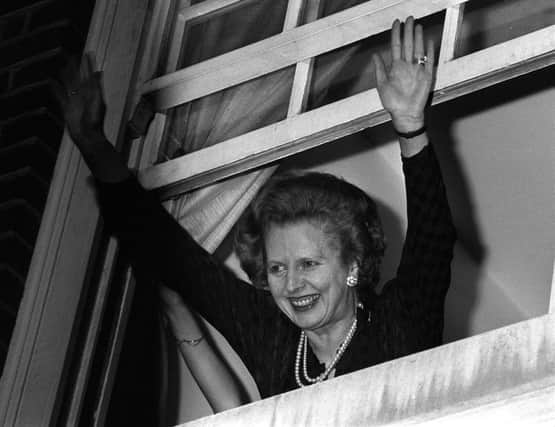David Blunkett: The worrying echoes of Labour’s 1983 General Election disaster that is burnt onto my heart


Jacob Rees-Mogg evoked apologies all round for his crassness, a doctored video purporting to show Labour’s Brexit spokesman Keir Starmer as an inadequate was rightly condemned: and the Secretary of State for Wales, Alun Cairns, resigned. That has been followed by Labour’s Deputy Leader Tom Watson unexpectedly resigning his seat and former Gordon Brown adviser and MP Ian Austin suggesting voters back Boris!
Advertisement
Hide AdAdvertisement
Hide AdWe have a Prime Minister who, against all the odds, secured a majority of 30 in the second reading of his Brexit Bill. A Prime Minister who then abandoned the Bill on the grounds that Parliament ‘didn’t really mean it’ and that there wouldn’t be ‘time to get it through’ when the three-day timetable he had set out was defeated.
Instead, he went for a five week General Election campaign, which in effect means that no further business will be conducted until the beginning of January. If Boris Johnson has won, he will simply push the deal through in what remains of January.
If the Remainers win then an extension would be essential as there is no other way that they could either renegotiate, organise the legislation to put a second referendum in place, and of course get the consent of the other 27 European Union members.
Advertisement
Hide AdAdvertisement
Hide AdAs for the SNP, they are likely to gain seats rather than lose them. And if Boris Johnson were to win, they would be in an ideal position to rally the Scottish people against a majority Tory government, and hence towards a further referendum on separation from the rest of the UK.
This would not only be a disaster for our union, but also create total havoc with Boris Johnson’s ‘Deal’. After all, the effective border with Northern Ireland – certainly in relation to the ports, would be from Scotland!
So what about the Liberal Democrats? They, of course, were responsible for putting David Cameron into Number 10. The consequence was the austerity measures which caused such hurt and discontent that it undoubtedly made a major contribution to the referendum decision to leave the European Union.
Bizarrely, their leader, Jo Swinson, has ruled out joining a coalition, even though their policy on proportional representation would almost inevitably lead to the impossibility of a future single party majority .
Advertisement
Hide AdAdvertisement
Hide AdI mentioned before in this column that there is a propensity for the Labour Party to fight the last election rather than the present one. This time the Labour leadership really do believe, encouraged by their own zealots, that we’re back in 2017. Jeremy Corbyn will be able to mop up Liberal Democrat and Green votes, and move to ‘glorious defeat’, and present it as a victory.
Unfortunately, the real world doesn’t work like that. This is more like 1983 and I remember it because its burnt on my heart. A radical Labour manifesto (described by a former minister, Gerald Kaufman as ‘the longest suicide note in history’), and a totally split centre and left. The emergence of the Social Democratic Party, whose members had broken away from Labour in 1981, saw two parties in a line, the SDP and what was then the old Liberals.
They managed to get 25 per cent of the popular vote. Labour got just under 28 per cent, the centre-left therefore exceeded 50 per cent of the total vote but Margaret Thatcher’s Conservative Party got a majority of 144. Add up the current poll ratings for the Lib Dems and Greens together with Labour and outside Scotland the picture looks reminiscent of 36 years ago. I’m not suggesting that this is the likely outcome on December 12. Who can predict what will happen: not least with the intervention of the wild card in the form of the Brexit Party and the Conservatives’ campaign performance so far.
Sadly, I don’t have a vote in this General Election. An arcane historical piece of nonsense has for the last 350 years barred members of the House of Lords from exercising their democratic citizenship and therefore their vote. But if I did, I want to make it clear that I would vote Labour.
Advertisement
Hide AdAdvertisement
Hide AdI want as many sane and sensible Labour MPs to be returned to the House of Commons as possible. This will be critical whether Jeremy Corbyn leads a minority government or whether Labour finds itself once again in Opposition.
The electorate have to be forgiven for wondering exactly what this is all about because had the Prime Minister set out a reasonable timetable for the remainder of his Brexit Bill once he achieved the key second reading majority, it would have been possible by now to have completed all stages in both Houses. Britain would probably have left the EU, albeit with a really lousy deal, by November 30. Instead, we have this General Election. You really do have to be forgiven for scratching your head and wondering what happened to sanity.